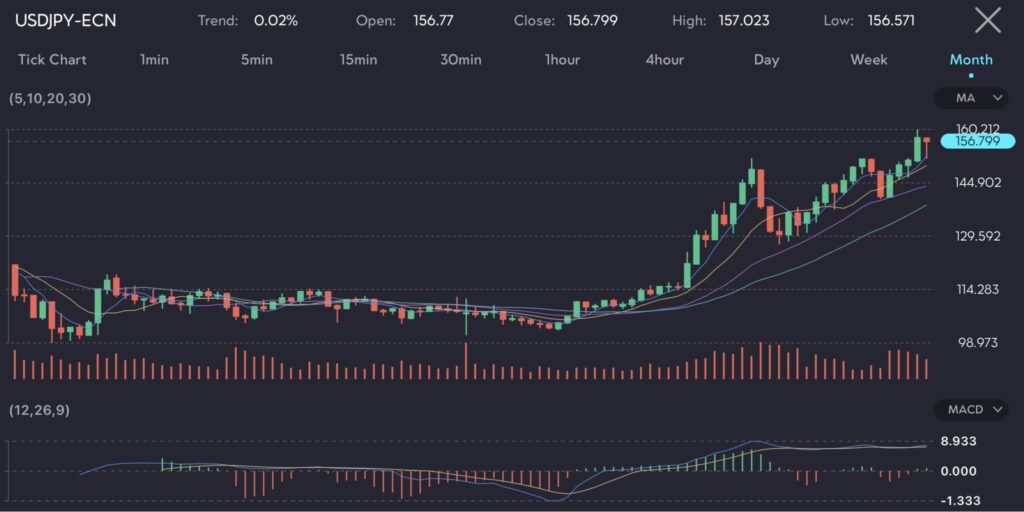Key points:
- Finance Minister of Japan Shunichi Suzuki emphasizes need for forex stability.
- Suspected intervention of JPY 9 trillion (approximately USD 57.11 billion) to support the Japanese currency.
- 10-year Japanese government bond yield reaches 1.1%, highest since 2011.
This article is a follow-up to: Bank of Japan (BOJ) open to act on excessive Japanese yen decline.
On Friday, Finance Minister of Japan Shunichi Suzuki heightened emphasis to take appropriate action against excessive currency movements, highlighting the importance of stability in the foreign exchange market. These comments were made during a regular post-cabinet meeting news conference and recent fluctuations in the value of the Japanese yen (JPY).
Traders suspect that the Japanese government intervened in the forex market with an estimated expenditure of around JPY 9 trillion (approximately USD $57.11 billion) on April 29 and May 2 to curb the decline of the JPY.
This intervention followed the yen hitting a 34-year low of 160 to the US dollar (USD). The exact details of these expenditures will be revealed later today when Japan releases its data on foreign exchange market activities for late April and May.

Picture: USD appreciating against the JPY, as observed on the VT Markets app.
The sharp decline in the JPY has prompted the government to act, as a weaker JPY increases import costs and can exacerbate inflation. However, intervening in the currency market comes with its own set of challenges.
Additionally, Suzuki highlighted concerns over rising interest rates, which could increase the interest payment burden and pressure fiscal policy to the Japanese government. He noted that a low interest rate environment has facilitated smooth debt management but emphasized the need to improve fiscal health as the 10-year Japanese government bond (JGB) yield hit 1.1% this week, its highest level since July 2011.
Related articles: What are government bonds?
What JPY currency traders should look out for in June
The JPY may see further interventions if excessive volatility persists. The release of data on forex spending of Japan will provide more insights into the actions of the government and market sentiment. Rising JGB yields could also lead to higher borrowing costs for the government, potentially impacting fiscal policy.









